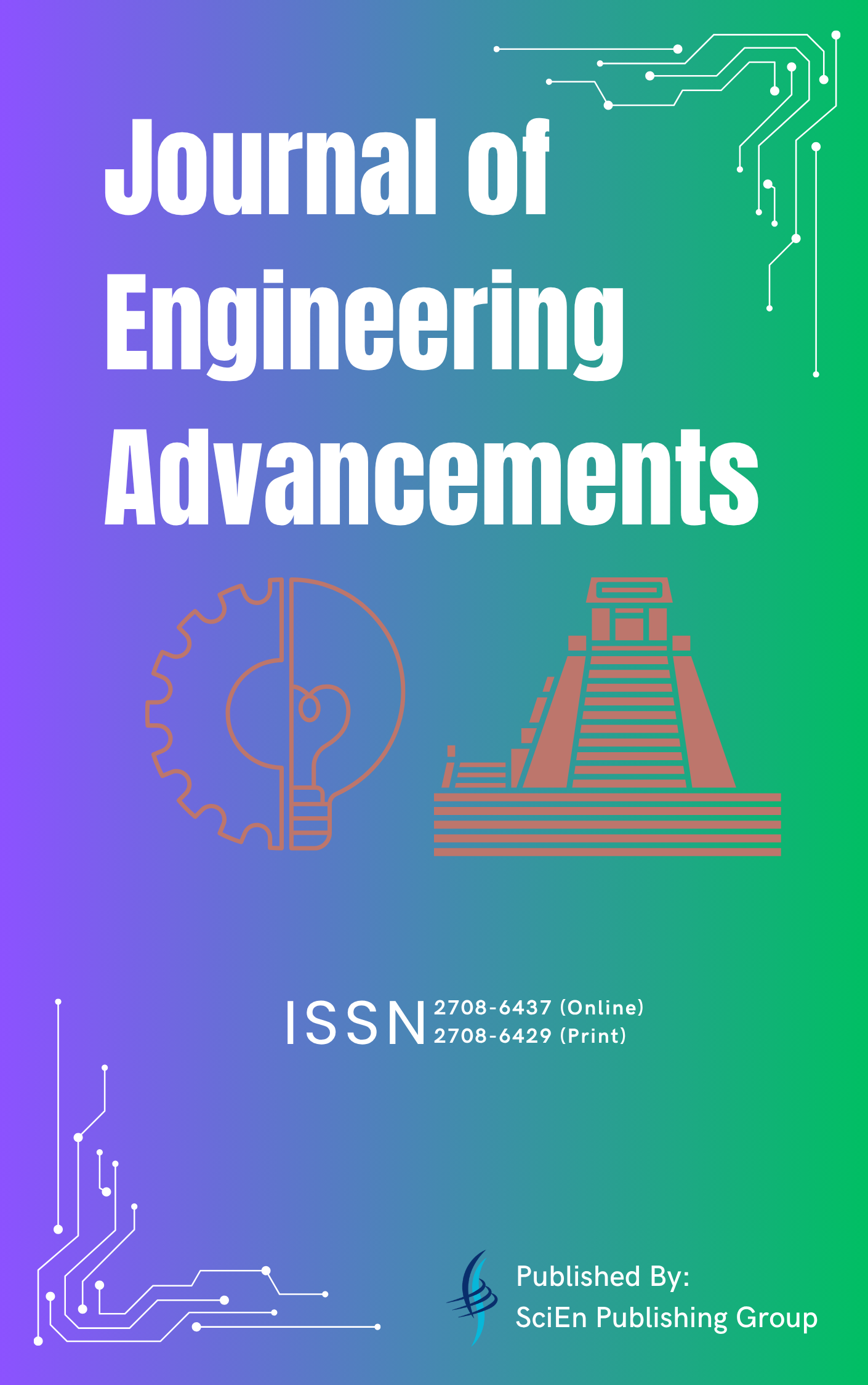A Literature Review on Electric Vehicle Routing Problem: Supply Chain Management Perspective
DOI:
https://doi.org/10.38032/scse.2025.3.27Keywords:
Electric Vehicle routing problem (EVRP), Freight transportation, Logistics distribution, AlgorithmsAbstract
In the modern world of technology and innovation, electric vehicle (EV) integration into supply chain management has gained much interest as a feasible way to address the problems connected with freight transportation. The Electric Vehicle Routing Problem (EVRP) is carefully examined in this paper, which covers crucial aspects such as EVRP variations, optimization strategies, infrastructure development, and sustainability issues. Alongside specialized and efficient algorithms such as Ant Colony Optimization (ACO) and modified NSGA-II for multi-objective optimization, variants such as Vehicle Routing Problem with Pickup and Delivery (VRPPD), Time Windows (VRPTW), and Capacitated Routing Problem (CVRP) are inspected. To outplay issues with range restrictions, charging time, and cost, the study insists the critical roles that battery technology, effective charging techniques, and infrastructure expansion play. In order to promote green supply chain techniques, route optimization and truckload consolidation are stressed. Furthermore, new developments such as 5G connectivity and driverless EVs are recognized as revolutionary for EVRP. This work synthesizes impactful studies to discover research gaps and recommends future possibilities, such as accommodating multi-objective models and hybrid metaheuristic techniques to fulfill environmental and operational objectives in EVRP. This paper offers an intensive framework for enhancing EV routing research and practice in the context of supply chain management. The study's research requires the inclusion of the inevitability of transforming more conventional VRP variants to their electric equivalents by adding charging station adaptability to existing EVRP models and creating accurate algorithms for optimal routing solutions. The paper also identifies a shortage of research on multi-objective models that take resilience, social, and green elements into priority, as well as hybrid and advanced metaheuristic algorithms. Hence, new models and algorithms are needed to handle the issues posed by emerging technologies namely 5G connection and driverless cars. Furthermore, governments and the business sector are not working together to establish comprehensive charging infrastructure for effective EV routing. The results show how crucial Electric Vehicle Routing Problems (EVRP) are becoming to supply chain management, signifying the necessity of refined optimization techniques, reliable charging infrastructure, and environmentally friendly procedures. The study is to fill in knowledge gaps and improve optimization models for electric vehicle routing that is both operationally and environmentally efficient with refined performance.
Downloads
Downloads
Downloads
References
[1] H. Preis, S. Frank, and K. Nachtigall, "Energy-optimized routing of electric vehicles in urban delivery systems," in Operations Research Proceedings 2012, S. Helber, M. Breitner, D. Rösch et al., Eds., pp. 583–588, Springer International Publishing, 2014.
[2] S. Zhang, Y. Gajpal, S. S. Appadoo, and M. M. S. Abdulkader, "Electric vehicle routing problem with recharging stations for minimizing energy consumption," International Journal of Production Economics, vol. 203, pp. 404–413, 2018.
[3] Azadi, M., Shabani, A., Khodakarami, M., & Farzipoor Saen, R. (2014). Planning in a feasible region by two-stage target-setting DEA methods: An application in green supply chain management of public transportation service providers. Transportation Research Part E: Logistics and Transportation Review, 70(1), 324–338.
[4] Rooshdi, R.R.M., Ab Rahman, N., Baki, N.Z.U., Majid, M.Z.A., & Ismail, F. (2014). An evaluation of sustainable design and construction criteria for green highway. Procedia Environmental Sciences, 20, 180–186.
[5] Stamadianos, T., Kyriakakis, N.A., Marinaki, M., & Marinakis, Y. (2023). Routing Problems with Electric and Autonomous Vehicles: Review and Potential for Future Research. Operations Research Forum, 4(2).
[6] Peter O., Pradhan A., & Mbohwa C. (2023). Industrial internet of things (IIoT): opportunities, challenges, and requirements in manufacturing businesses in emerging economies. Procedia Computer Science, 217, 856–865.
[7] Arevalo-Ascanio, R., De Meyer, A., Gevaers, R., Guisson, R., & Dewulf, W. (2024). Location-Routing Problem for Integrated Supply Chain Network Design with First and Last Mile: A Critical Literature Review. OPERATIONS AND SUPPLY CHAIN MANAGEMENT, 17(2), 206–219.
[8] Elhedhli, S., & Merrick, R. (2012). Green supply chain network design to reduce carbon emissions. Transportation Research Part D: Transport and Environment, 17(5), 370–379.
[9] Farzipoor Saen, R. (2009). Supplier selection by the pair of non-discretionary factors-imprecise data envelopment analysis models. Journal of the Operational Research Society, 60(11), 1575–1582.
[10] Zheng, J., Garrick, N.W., Atkinson-Palombo, C., McCahill, C., & Marshall, W. (2013). Guidelines on developing performance metrics for evaluating transportation sustainability. Research in Transportation Business & Management, 7, 4–13.
[11] Jha, M.K., Ogallo, H.G., & Oludare, O. (2014). A quantitative analysis of sustainability and green transportation initiatives in highway design and maintenance. Procedia - Social and Behavioral Sciences, 111, 1185–1194.
[12] Trappey, A.J.C., Trappey, C., Hsiao, C.T., Ou, J.J.R., Li, S.J., & Chen, K.W.P. (2012). An evaluation model for low carbon island policy: the case of Taiwan’s green transportation policy. Energy Policy, 45(5), 510–515.
[13] Zheng, X., Yin, M., & Zhang, Y. (2019). Integrated optimization of location, inventory and routing in supply chain network design. Transportation Research Part B: Methodological, 121, 1–20.
Published
Conference Proceedings Volume
Section
License
Copyright (c) 2025 Iftikhar Farahad , Shoumik Deb Nath (Author)

This work is licensed under a Creative Commons Attribution 4.0 International License.
All the articles published by this journal are licensed under a Creative Commons Attribution 4.0 International License


